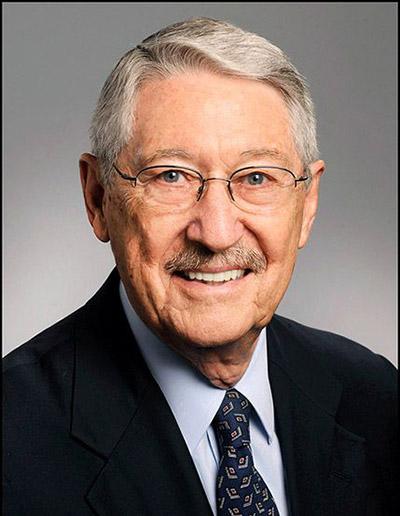School of Medicine alumnus wins prestigious Lasker Award for immunology research
Pioneering immunology researcher Max Cooper,MD, a graduate of Tulane University School of Medicine, has been named a co-recipient of the 2019 Lasker medical research award, one of the highest biomedical research honors in America.
Cooper, a professor at Emory University, and Jacques Miller, PhD from The Walter and Eliza Hall Institute of Medical Research received the Albert Lasker Basic Medical Research Award for their discovery of the two distinct classes of lymphocytes — B and T cells. The monumental achievement provided the organizing principle of the adaptive immune system and launched the course of modern immunology.
“The Lasker Awards are one of the most prestigious awards given in medical science, frequently preceding Nobel prizes,” said Dr. Lee Hamm, senior vice president and dean of Tulane University School of Medicine. “We are very proud of Dr. Cooper for his tremendous contribution to the field of immunology.”
Cooper graduated from Tulane School of Medicine in 1957 and completed his residency in pediatrics at Tulane in 1960.
The adaptive immune system “remembers” specific invader organisms (known as pathogens) or other abnormal cells in the body that it has encountered and eliminates them. It is comprised of B and T cells. B cells develop in the bone marrow and produce antibodies in response to pathogens, disabling them or tagging them to be destroyed. T cells mature in the thymus gland and help alert B cells to the presence of pathogens; they can also detect and kill infected or abnormal cells.
Miller showed that the thymus, previously thought to be a vestigial organ, is essential for immune function. Cooper then demonstrated that there are two distinct cell lineages in the adaptive immune system: B cells and T cells. Working with chickens, he showed that an avian organ called the bursa of Fabricius is the site where B cells mature and characterized the different stages of B cell development.
Miller established that interactions between B and T cells are essential to their normal maturation and function. Later, Cooper and colleagues showed that, in mammals, B cells are generated in the liver of the fetus and the bone marrow after birth.
These seminal discoveries defined the field of adaptive immunity and serve as the building blocks for current immunology research and clinical advances.
For 74 years, the Lasker Foundation awards have recognized the contributions of leaders who made major advances in the understanding, diagnosis, treatment, cure, or prevention of human disease.
Last year, Cooper and Miller received the 2018 Japan Prize from the Japan Prize Foundation for their pioneering immunology research.


